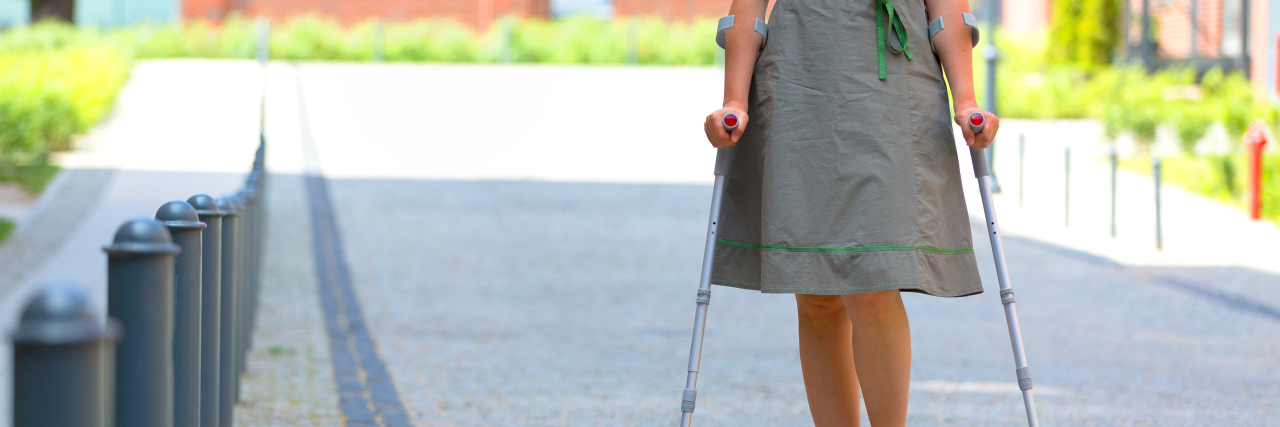I let go of my crutch and reached for the door of a trendy coffee shop in downtown Vancouver. I paused to look in through the glass-filled door to take a peek in the highly anticipated coffee shop to see if my friend had already arrived. Inches from the handle, a hand swept over to grab the door.
“Let me help you,” he said.
“I am fine,” I insisted.
“No, no let me help you,” and the door swung open.
He was trying to be kind, but I told him no.
After studying for a few hours, I went to ask about a glass of water. I missed the water station and asked the barista for a refill. He let me know the water was in the corner. I turned to go fill up my glass when he glanced down. He saw my legs. He took my glass out of my hand and insisted he would do it for me.
I needed water, not help.
A mother with a group of pre-teen girls were acting admittedly terrible. The mother saw me pass them, because even with the use of forearm crutches and janky legs I was faster than them. The mother motioned in my direction and told the young girls to be thankful.
“My life is great.”
I am not sure she believed me.
This is a plea for you to respect my life and boundaries. I have no issues asking for help if I need it, but I am earnest when I tell you it is not often. I would benefit more from a chat to help verbally process the frustrations any normal 20-something experiences than assistance opening a door.
I have lived in this body my whole life and while I was not diagnosed with a neurological disorder until 10, I have spent over a decade adjusting. It gets the job done. I can assure you that dealing with the negative stigmas attached to it is far more difficult.
What you may not understand seeing me at a passing glance is that I am a full-time university student, work two jobs and volunteer on a regular basis. I am a fully-functioning member of society. It is ableist to assume I am any less.
I will shout it until it isn’t shocking that your teacher is in a wheelchair or your doctor is medically complex. It is time to raise our expectations for those with disabilities. Sometimes that means championing a little girl who wants to be a journalist — or allowing me to open my own door.
When I was relearning to walk the last time, as I was being released from the program my doctor told me, “CRPS is not a reason not to do something. You taught yourself to walk. There is nothing you can’t do.”
I think she is right.
Getty image by Apeyron.

